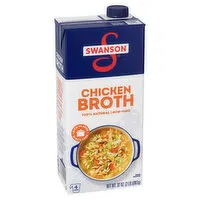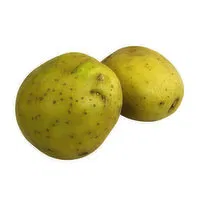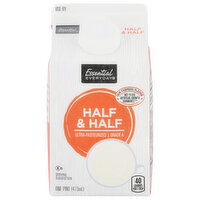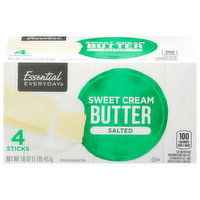




- Place the broth and potatoes in a 3-quart saucepan. Heat over high heat to a boil; then cover and cook (still on high) for 10 minutes or until the potatoes are tender.
- Drain the potatoes, reserving the broth.
- Mash the potatoes with the cream, butter and about 1/2 cup reserved broth (the consistency will vary depending on the type of potatoes used, so you may want to add more of the reserved broth – see ingredient note). Season with salt and freshly ground black pepper.
Tip: For Ultimate Mashed Potatoes, stir 1/2 cup sour cream, 3 slices cooked and crumbled bacon (reserve some to sprinkle on top) and 1/4 cup chopped fresh chives into the hot mashed potatoes. Sprinkle with the reserved bacon.
Ingredient Note: You can also prepare this recipe with other types of potatoes, including red potatoes, sweet potatoes or all-purpose potatoes. When you’re mashing the potatoes and adding back the reserved broth, you may need more or less broth depending on the type of potatoes you used. More waxy potatoes, like red potatoes or sweet potatoes, will absorb less liquid during cooking than a more starchy potato, like a russet. The type of potato used will also affect the texture of the finished mashed potatoes. Gold or russet potatoes result in fluffier, creamier mashed potatoes.
Shop Ingredients




Directions
- Place the broth and potatoes in a 3-quart saucepan. Heat over high heat to a boil; then cover and cook (still on high) for 10 minutes or until the potatoes are tender.
- Drain the potatoes, reserving the broth.
- Mash the potatoes with the cream, butter and about 1/2 cup reserved broth (the consistency will vary depending on the type of potatoes used, so you may want to add more of the reserved broth – see ingredient note). Season with salt and freshly ground black pepper.
Tip: For Ultimate Mashed Potatoes, stir 1/2 cup sour cream, 3 slices cooked and crumbled bacon (reserve some to sprinkle on top) and 1/4 cup chopped fresh chives into the hot mashed potatoes. Sprinkle with the reserved bacon.
Ingredient Note: You can also prepare this recipe with other types of potatoes, including red potatoes, sweet potatoes or all-purpose potatoes. When you’re mashing the potatoes and adding back the reserved broth, you may need more or less broth depending on the type of potatoes you used. More waxy potatoes, like red potatoes or sweet potatoes, will absorb less liquid during cooking than a more starchy potato, like a russet. The type of potato used will also affect the texture of the finished mashed potatoes. Gold or russet potatoes result in fluffier, creamier mashed potatoes.